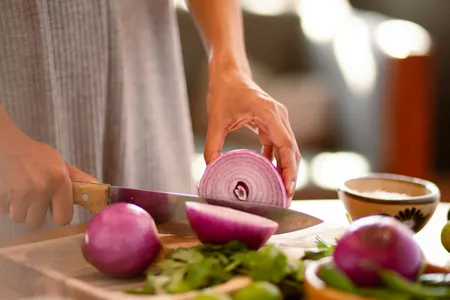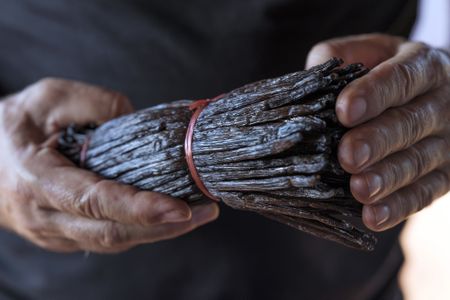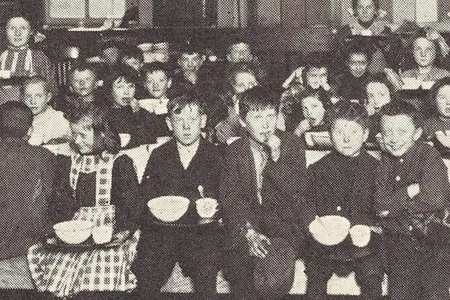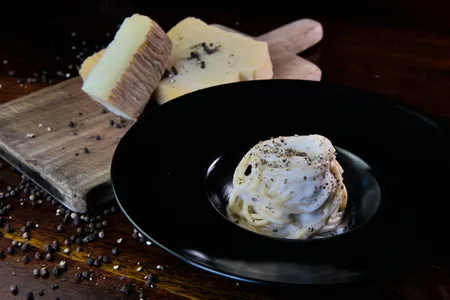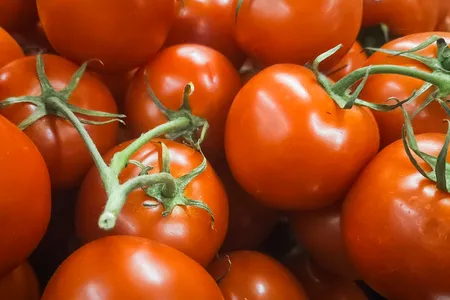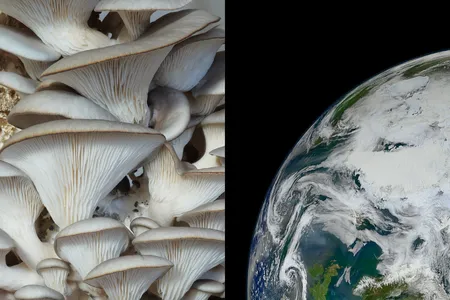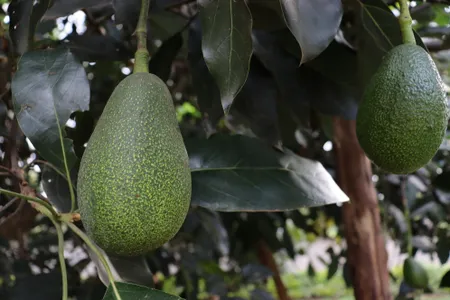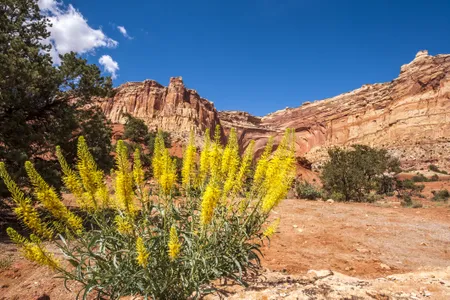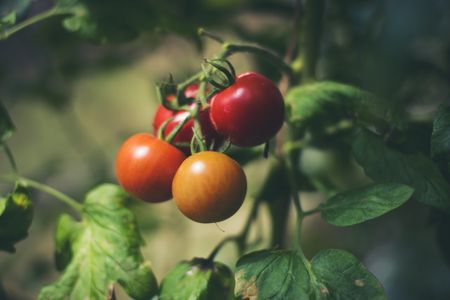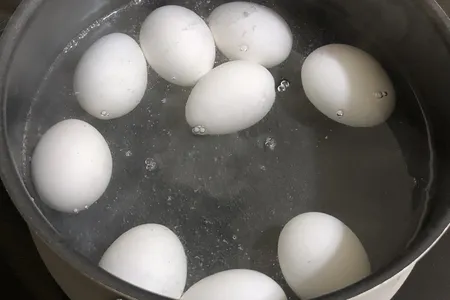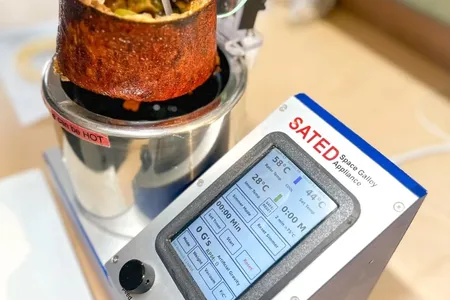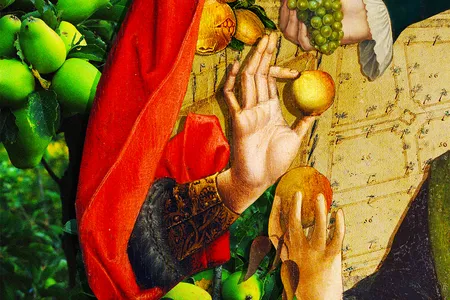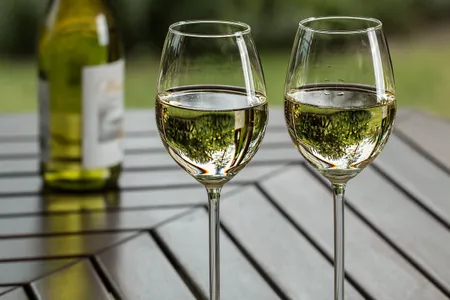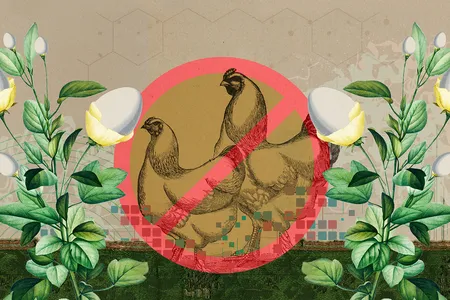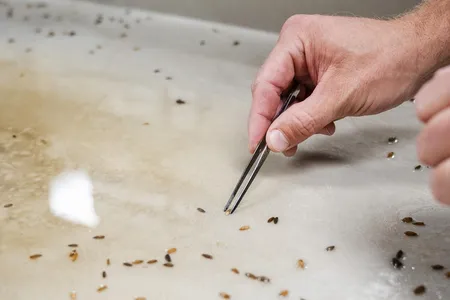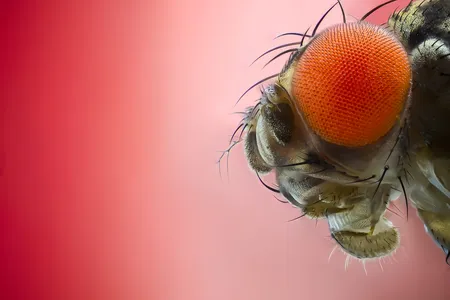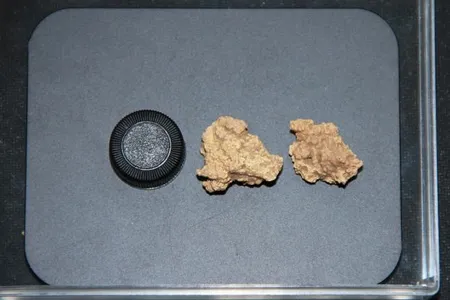Neanderthals May Have Been Running a Sophisticated ‘Fat Factory’ in Germany 125,000 Years Ago
New research suggests that they smashed animal bones into tiny pieces before boiling them to extract the high-calorie grease inside
Something Strange Is Happening to Tomatoes Growing on the Galápagos Islands
Scientists say wild tomato plants on the archipelago’s western islands are experiencing “reverse evolution” and reverting back to ancestral traits
What’s the Best Way to Cut Onions Without Crying? New Research Suggests That Thin, Sharp Blades Are Key to Minimizing Tears
For a new study, physicists visualized and quantified the tear-producing droplets that get expelled from onions when they’re cut
The Bittersweet Beginnings of Vanilla Cultivation Can Be Traced Back to the Far-Flung Isle of Réunion
A journey to the remote Indian Ocean island reveals the story behind the fragrant, delicious, ubiquitous spice—and the enslaved youth who made it a commercial success
American Schools Have Been Feeding Children for More Than 100 Years. Here’s How the School Lunch Has Changed
A new exhibition in Philadelphia explores how nutritional science, technological advances and political debates shaped the foods on schoolchildren’s trays
Researchers Have the Perfect Cacio e Pepe Recipe Down to a Science—Literally
Cooking the famous, creamy pasta sauce is as delicious as it is frustrating, because the cheese tends to clump when exposed to heat. That’s why Italian scientists created a new technique that’s “simple yet precise”
How the Misrepresentation of Tomatoes as Stinking ‘Poison Apples’ That Provoked Vomiting Made People Afraid of Them for More Than 200 Years
The long and fraught history of the plant shows that it got an unfair reputation from the beginning
SpaceX Astronauts Will Try Growing the First Mushrooms in Space on Upcoming Fram2 Mission Over Earth’s Poles
Described as the “perfect space crop,” the nutritious and ready-to-eat fungus could be a key stepping stone toward fueling crew members during long-term spaceflight
New Study Reveals How Humans Cultivated Avocados Over Thousands of Years
Research in Honduras shows that humans began selecting for larger fruits with thicker rinds as early as 7,500 years ago—long before maize arrived in the region
About One Billion People Are Deficient in Selenium. Genetic Engineering Could Change That
Hoping to stave off a global health crisis, scientists are breeding a new generation of crops that suck the mineral, which helps the thyroid and immune system, from soil
Can Electro-Agriculture Revolutionize the Way We Grow Food?
A new technology is pushing the boundaries of farming by using electricity to grow crops without photosynthesis
Scientists Say They’ve Found the Perfect Way to Boil an Egg. It Takes 32 Minutes and Lots of Attention
The team used computer models of computational fluid dynamics, then tested out the painstaking—yet reportedly delicious—recipe for themselves
Could This Space Oven Allow Astronauts to Finally Cook in Space?
An aerospace engineer has invented an appliance that can whip up quiches, pizzas and more in a zero-gravity environment
How to Use Renaissance Paintings to Improve the Farming of Tomorrow
An arboreal archaeologist roots around the Italian countryside and in centuries-old frescoes for a cornucopia of fruits long forgotten—but still viable to grow and consume
Alcohol Consumption Raises the Risk of Seven Cancers, Says U.S. Surgeon General in a New Health Advisory
The “Nation’s Doctor” has called for a cancer warning label on alcoholic beverages and suggests the recommended limits for alcohol consumption should be reassessed
The Gooey Goodness of Velveeta Was a Smash Hit From Its Very Cheesy Start
How Emil Frey whipped up a smooth dairy sensation after two years of tinkering
Scientists Are Trying to Crack the Recipe for the Perfect Plant-Based Eggs
With new ingredients and processes, the next generation of substitutes will be not just more egg-like, but potentially more nutritious
Scientists Are Trying to Make Whiskey Using Rye Seeds That Were Submerged in a Lake Huron Shipwreck for Nearly 150 Years
Divers, distillers and researchers recently recovered grain from the “James R. Bentley,” a wooden schooner that sank during a storm in 1878
From Silk Moths to Fruit Flies, These Five Insects Have Changed the World
It’s easy to write bugs off as pests, but consider the ways in which they have positively impacted our lives
The World’s Oldest Cheese Was Buried in a Chinese Tomb 3,600 Years Ago. Now, Scientists Have Sequenced Its DNA
New research has revealed that the mysterious white substance found alongside three ancient mummies was once a soft cheese called kefir
Page 1 of 24


